
Having a dedicated space to retire after a day in the pool may seem like a pipe dream. Learn about pool house costs to see if you can make that dream a reality.
Make a splash by building the pool house of your dreams


Pool houses are freestanding structures near an outdoor pool.
They often have storage space for pool items and include shower facilities.
Pool houses can also be built as lodging for short-term guests.
Pros include keeping the main house cleaner and increasing home value.
Cons are the cost of building or remodeling and increased insurance costs.
Old Hollywood made them fashionable. The Fresh Prince of Bel-Air lived in one; so did Rory on Gilmore Girls. But what is a pool house, exactly? Here we dive into the definition of a pool house, the different types, various pros and cons, design tips, and whether building one can add value to your home.
Whether you call it a cabana, guest cottage, villa, or casita, a pool house is a structure found near an outdoor pool that is traditionally meant to give pool users a place to change, store pool equipment, or even be a temporary lodging for visitors.
Pool houses became popular in the 1930s when Hollywood stars began to build private pools and wanted a nearby space to change, entertain, or relax. Now, the meaning and use of pool houses has expanded to fit a variety of definitions, as well as the needs of modern-day homeowners. While they can have different uses, pool houses tend to have one or more of these features in common:
A permanent, freestanding structure
Located close to a pool
Includes storage space for pool items
Includes bathroom and shower facilities
Typically sized to match the accompanying home and pool
The average pool house ranges between 100 and 500 square feet, and packs a lot of usefulness into that small space.
Most pool houses are a reflection of the home, yard, and pool they serve. This means that large homes and large pools on spacious properties usually have larger pool houses, while smaller homes and yards have smaller ones. The tiniest pool houses may offer only storage or have just a small changing area; large pool houses have room for a lot of amenities and tend to be multi-purpose. In some cases, pool houses look more like a shed or small garage; in others, they can be a miniature replica of the home itself.
Traditionally, the main purpose of a pool house was to keep pool-related items and conveniences close to the pool itself, but many people customize them to fit their own needs and those of their guests and property. If you are building a pool house, you can choose the form and function of the space. Even if you are renovating an existing garage or outbuilding, you can still find creative ways to turn it into the space you want.
Pool guests need a convenient place to shower, change, and use the bathroom. Without a pool house, they may track water into the main house. These spaces can be big or small, but those aimed at serving guests usually have changing room space, storage for towels and street clothing, places to hang wet bathing suits, and even a washer and dryer for maximum convenience.
You have a lot of flexibility when adding or renovating a pool guest house. You will likely want plumbing and electricity, but the size, design, and added features are up to you.
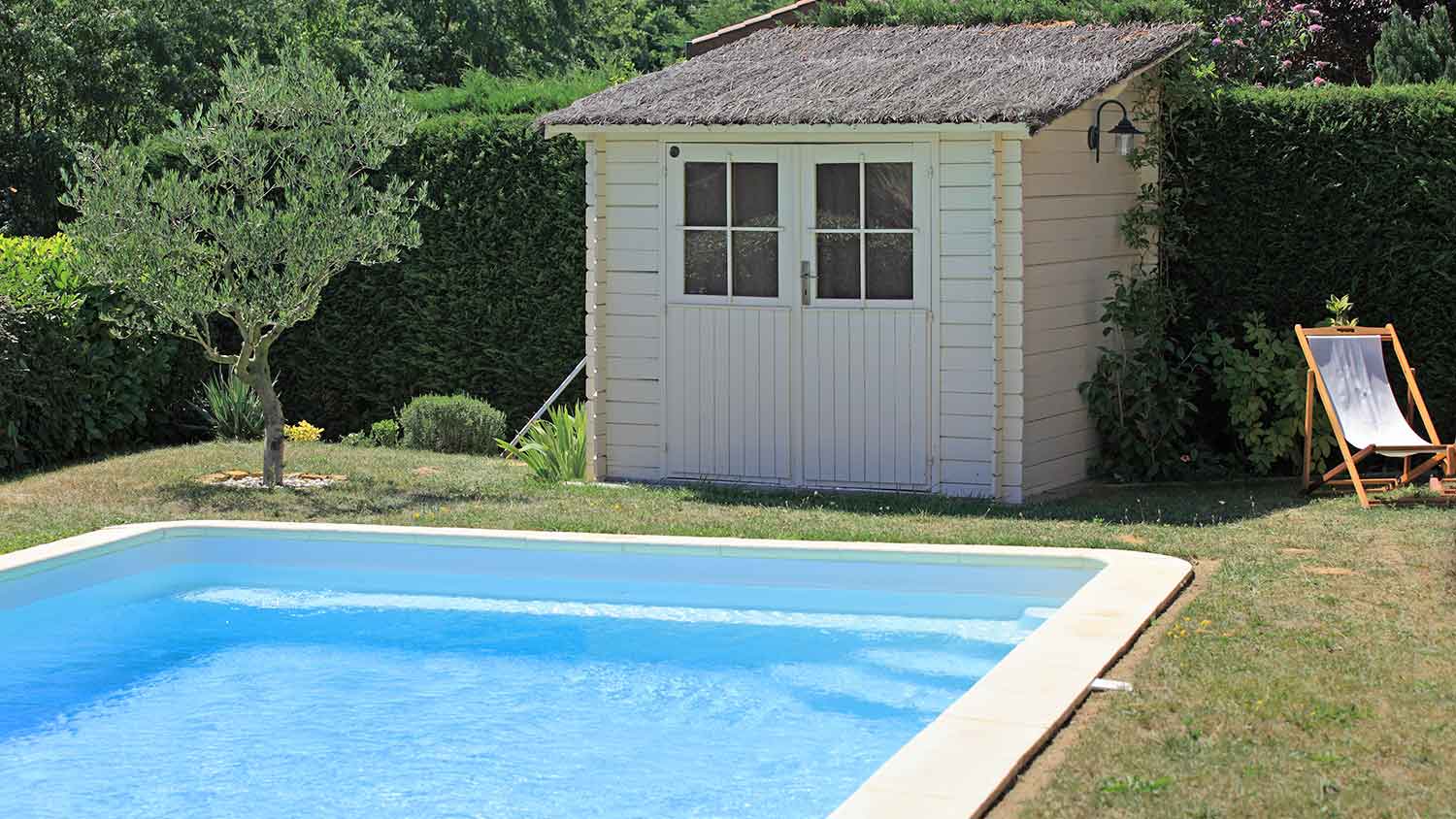
Pools require equipment and accessories. From chemicals, maintenance supplies, and skimmers, to pumps, filters, and toys, you need a place to store all that stuff. Using a pool house instead of a garage makes maintenance easier and faster.
If storage alone is your goal, then your pool house can be simpler, smaller, and less costly to build. Depending on whether you plan to house your pump or other electrical devices in it, you may not even need electrical or plumbing connections.
If you have children (or like to act like a kid), adding recreational space to a pool house can be a great idea. This can include comfortable furniture for hanging out, a bar or drinks refrigerator, an outdoor kitchen, fireplace, games and entertainment systems, pool or foosball tables, and open patio space with a shade covering or pergola.
Entertainment spaces like these can cater to pool users and non-swimmers alike, giving everyone something fun to do. These can range from simple to luxurious, and the end result will depend on your goals, budget, and vision.
Short- and long-term guests might be fun to have around, but housing them in your own space can feel cramped. If you have a pool house that is outfitted like a guest house, you and your visitors may both feel more comfortable. Even if the pool house serves double-duty by including storage or day-use space, having a bedroom, kitchenette, bathroom, and living area for overnight guests is a great use of pool house space.
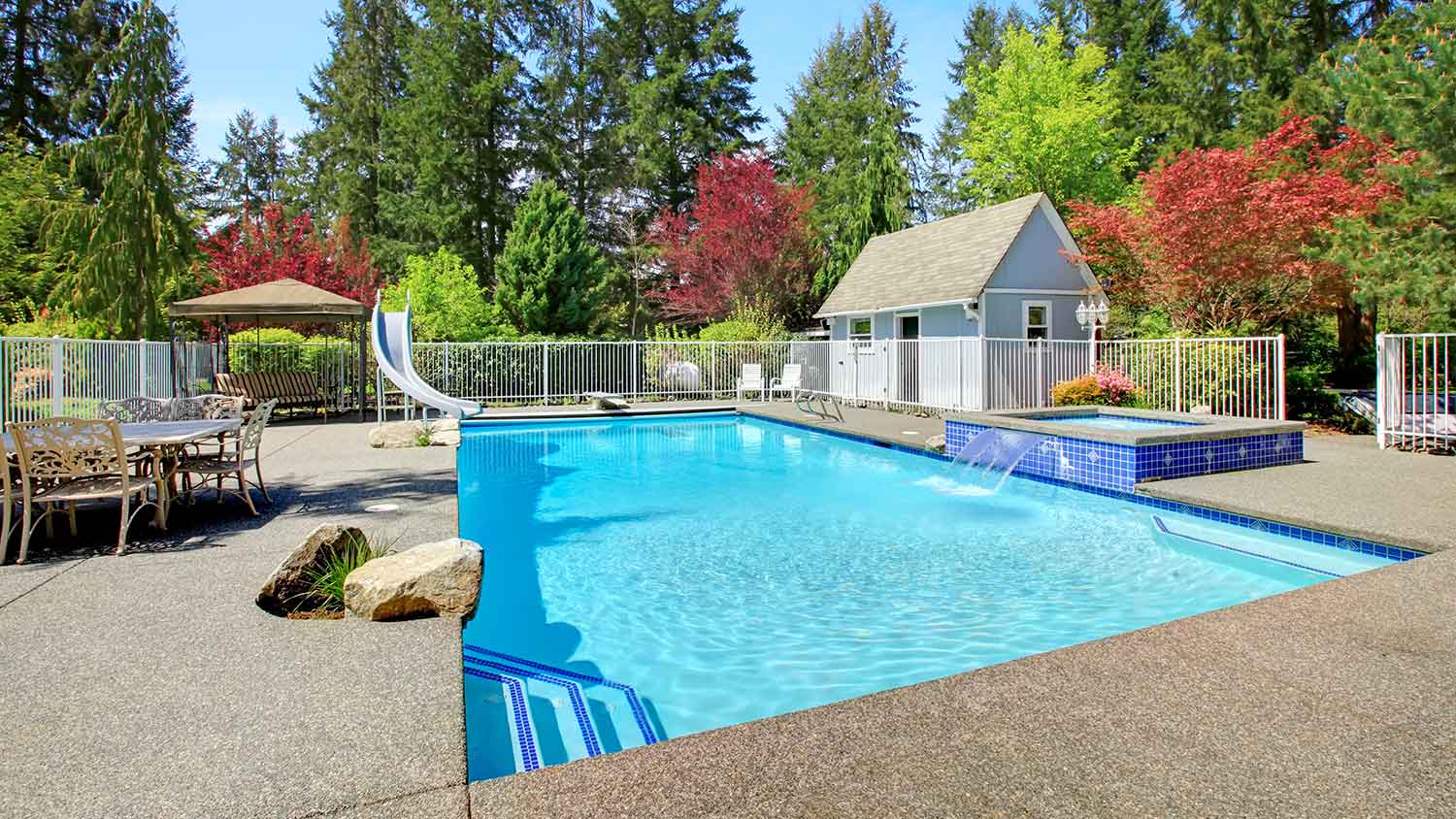
Pool houses have unique pros and cons. Whether you already have one and are looking to update or modify its use, or you are considering building a new pool house on your property, keep these possible upsides and downsides in mind.
| Pros | Cons |
|---|---|
| Private space to change and shower | Can be expensive to build or remodel existing space |
| Keeps homes cleaner and prevents water damage | Requires cleaning and maintenance |
| Makes for an elevated pool experience | Another area to keep safe for kids and guests |
| Adds variety of use to the pool area | Can increase insurance rates |
| Increases home value | Your guests may get too comfortable and not want to leave. |
When done right, pool houses can make swimming areas look upscale and function better in many ways. Here is why you should consider a pool house for your home.
Nothing beats the convenience of having a private place nearby to shower and change before and after using a pool.
Having guests use the pool house keeps your home cleaner, drier, and more private.
Pool house amenities can make the whole pool experience feel more luxurious.
Pool houses with guest amenities, games, lounge space, and more can make a pool area even more useful.
Pool houses may raise your home’s value.
Despite their appeal and usefulness, pool houses are not for everyone or every property. Here is why.
It can be expensive to build a new structure or remodel an existing space if it is dated or does not meet your needs.
Pool houses will need cleaning and maintenance, which can be a burden.
Pool houses can pose safety dangers, especially if they are filled with equipment or have entertainment features. You will need to supervise children and take steps to protect guests of all ages.
Adding a structure may increase insurance rates.
It is a bit tongue-in-cheek, but guest houses attract guests—and sometimes it is hard to get them to leave.
You will be happiest with a pool house that fits your needs and style. Before building, updating, or remodeling a pool house, think carefully about your needs and goals. A local custom home builder near you can help design the right type of pool house. Here are some considerations to take into account.
Knowing the purpose of your pool house is key. If you simply need a storage space, your needs will be different than if you want a guest house or recreational space. Write down your goals to help stay focused. Think about how you plan to use the structure, how many people are likely to use it, and what amenities and special features you want.
This is the type of project that can easily get out of hand, especially if your research includes gorgeous photos of luxury cabanas. To keep your plans and spending in line with reality, research average pool house costs, determine a firm budget before you begin, and make sure your contractor knows and respects your limit. It is also smart to set aside some contingency funds (usually about 10%) in case the project runs over your original estimate or you face unexpected costs.
If you already have an existing pool house or building you plan to renovate, your project planning will look different than if starting from scratch. Your construction plans may vary from building an entire structure from the ground up to simply making an existing space look more like your vision.
This is the fun part—deciding on the design and aesthetics of your pool house. Knowing how often and how you usually use the pool area will inform your design decisions. There are many great resources for pool house design ideas, so enjoy this part of the process.
Bigger projects like pool houses often require permits and permission from planning commissions, depending on location. It is smart to start by talking with your region’s building department or local contractors to learn more about the process and what to expect. Adding utilities like plumbing and electrical will increase the overall cost.
If you are in the early stages of planning a backyard renovation, it can be smart to combine projects and include a pool house in your expected cost to build a pool.
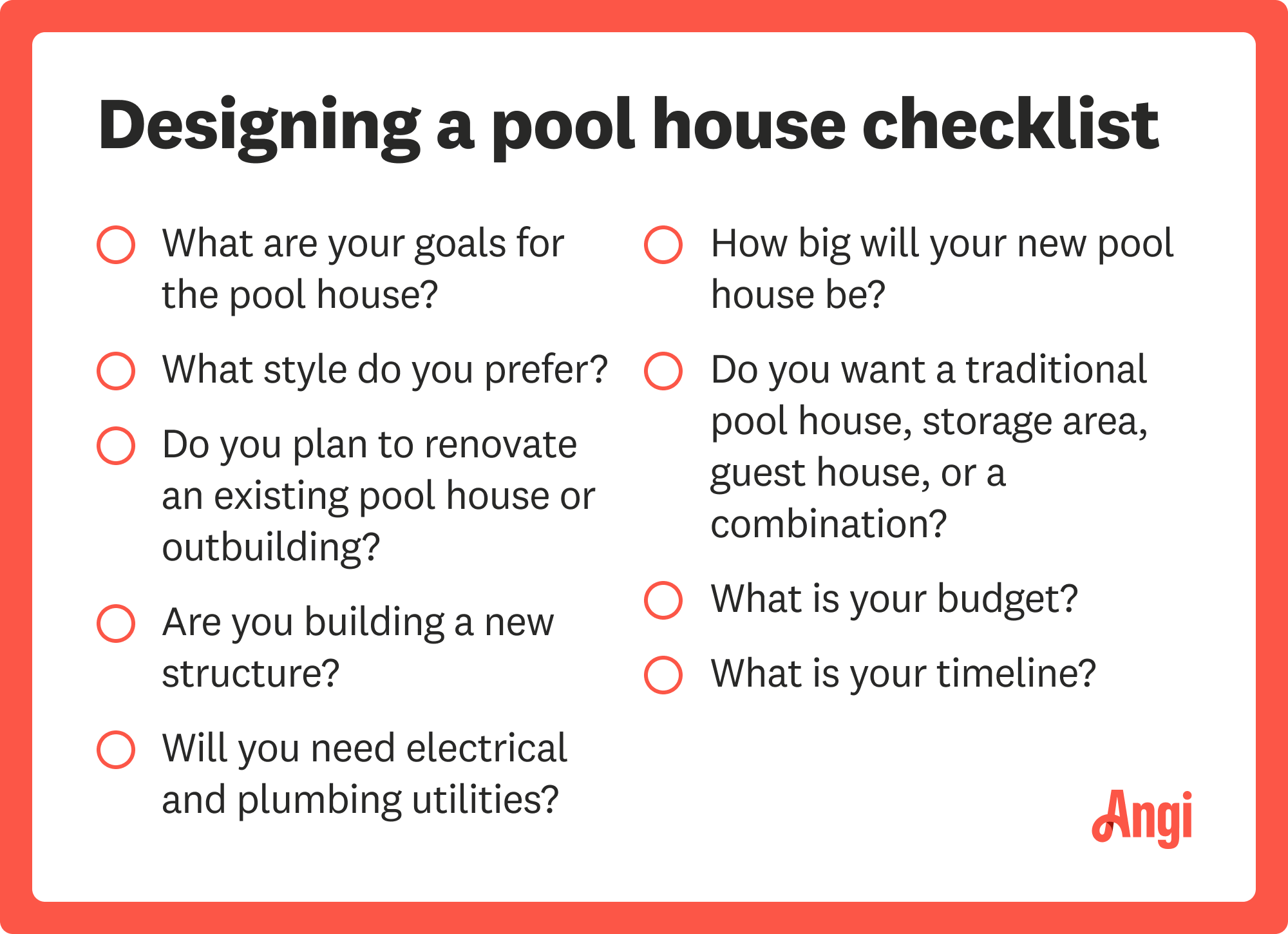
Generally speaking, adding a pool house to your property will add value to your home. In fact, some estimates say it can add 5% to 8% to home price. It can also increase the appeal of your pool area and property. Of course, that depends on the overall property value and the specifics of your pool and pool house. The best way to ensure a pool house adds value is to make sure it is built legally, safely, and in a way that makes it useful, appealing, and attractive.
If you are considering building a pool house to add value, it is smart to talk with a realtor about how much value you can expect to add and ways to maximize your investment.
From average costs to expert advice, get all the answers you need to get your job done.

Having a dedicated space to retire after a day in the pool may seem like a pipe dream. Learn about pool house costs to see if you can make that dream a reality.
The average cost of a yurt is $35,000, but the price can vary depending on the size, building materials, and number of add-on features.
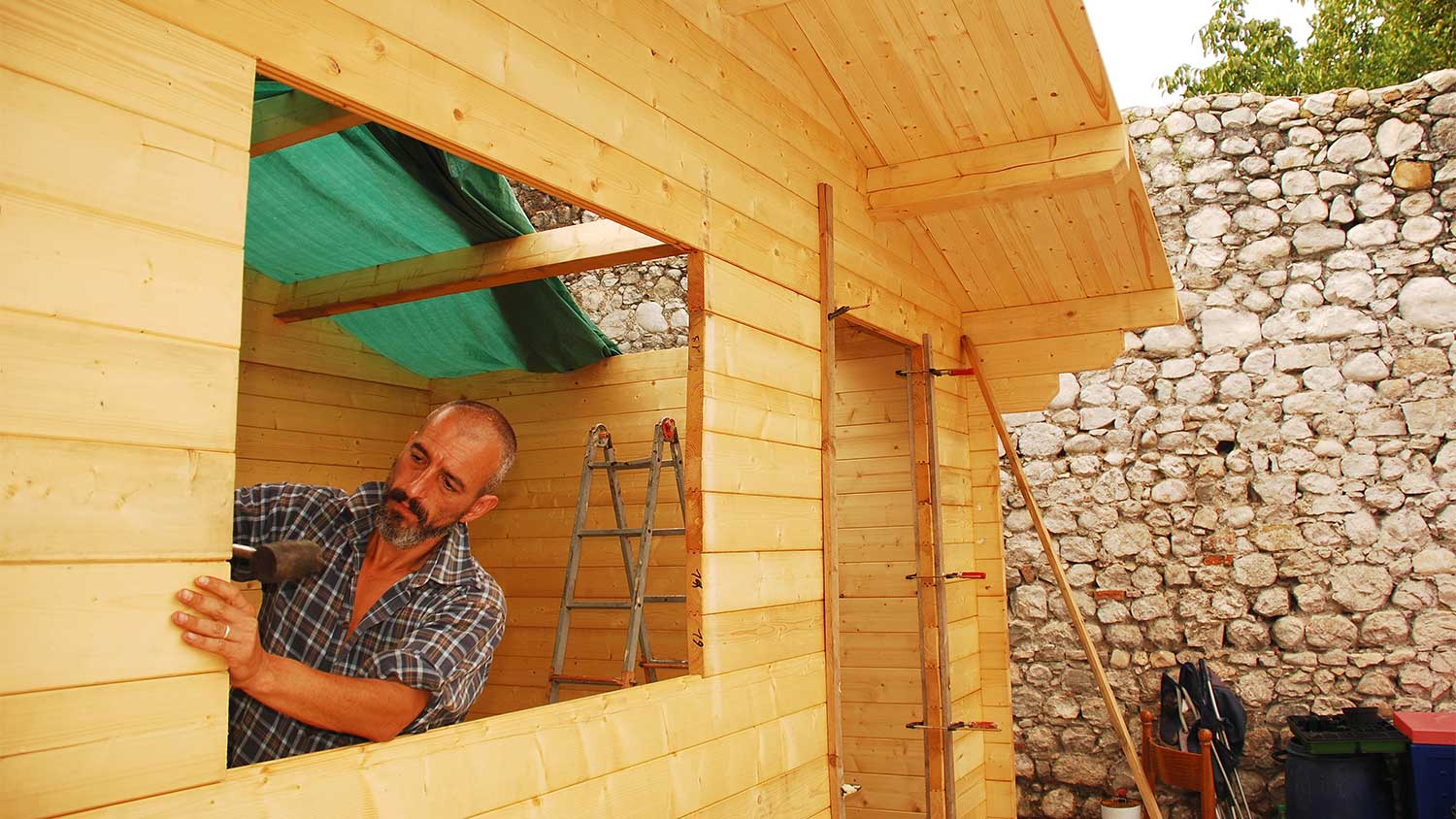
Discover the cost to build a workshop. Learn about price ranges, key cost factors, and ways to save on your new workspace project.
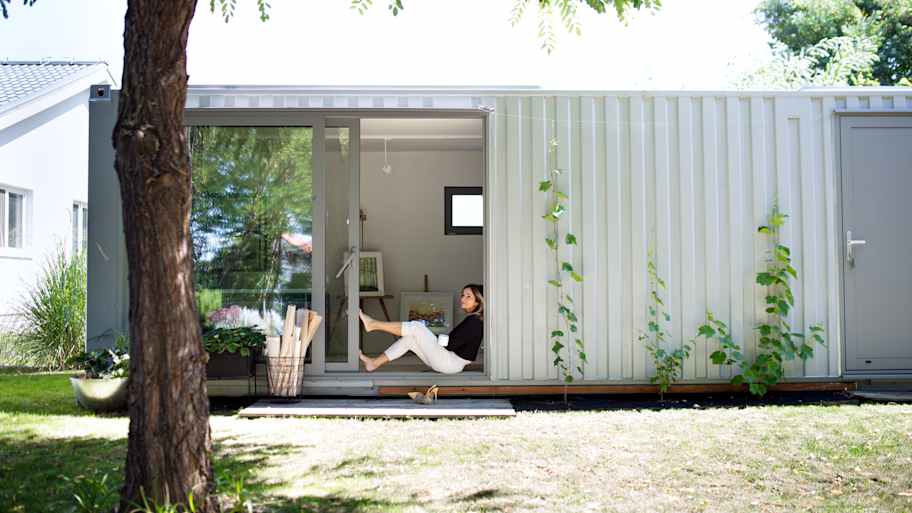
Container homes are trending as an eco-friendly, affordable path to homeownership. Here are the pros and cons of container homes before you commit.
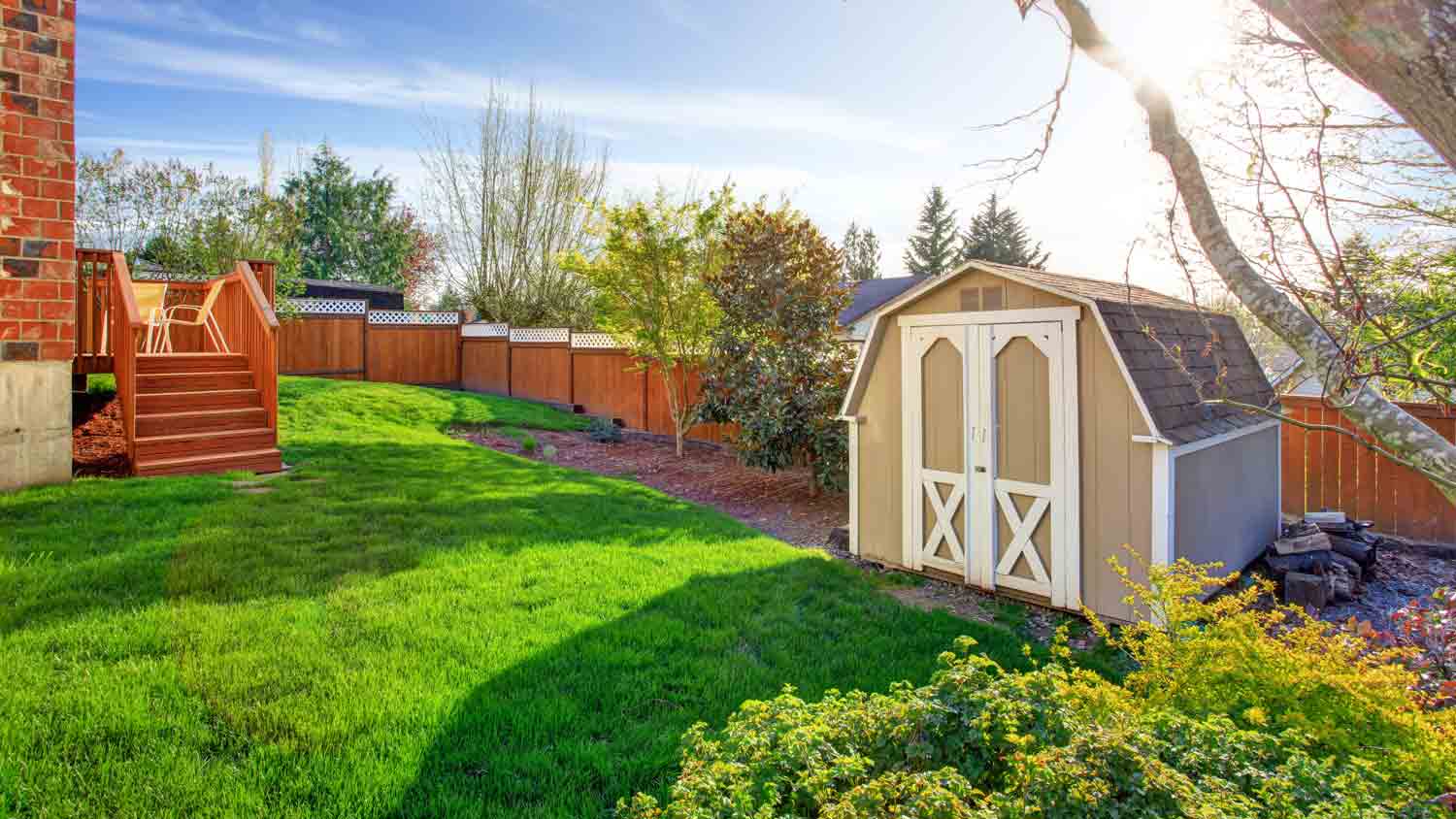
Discover the cost to build an outbuilding. Get detailed price breakdowns, key cost factors, and expert tips to help you plan your project with confidence.
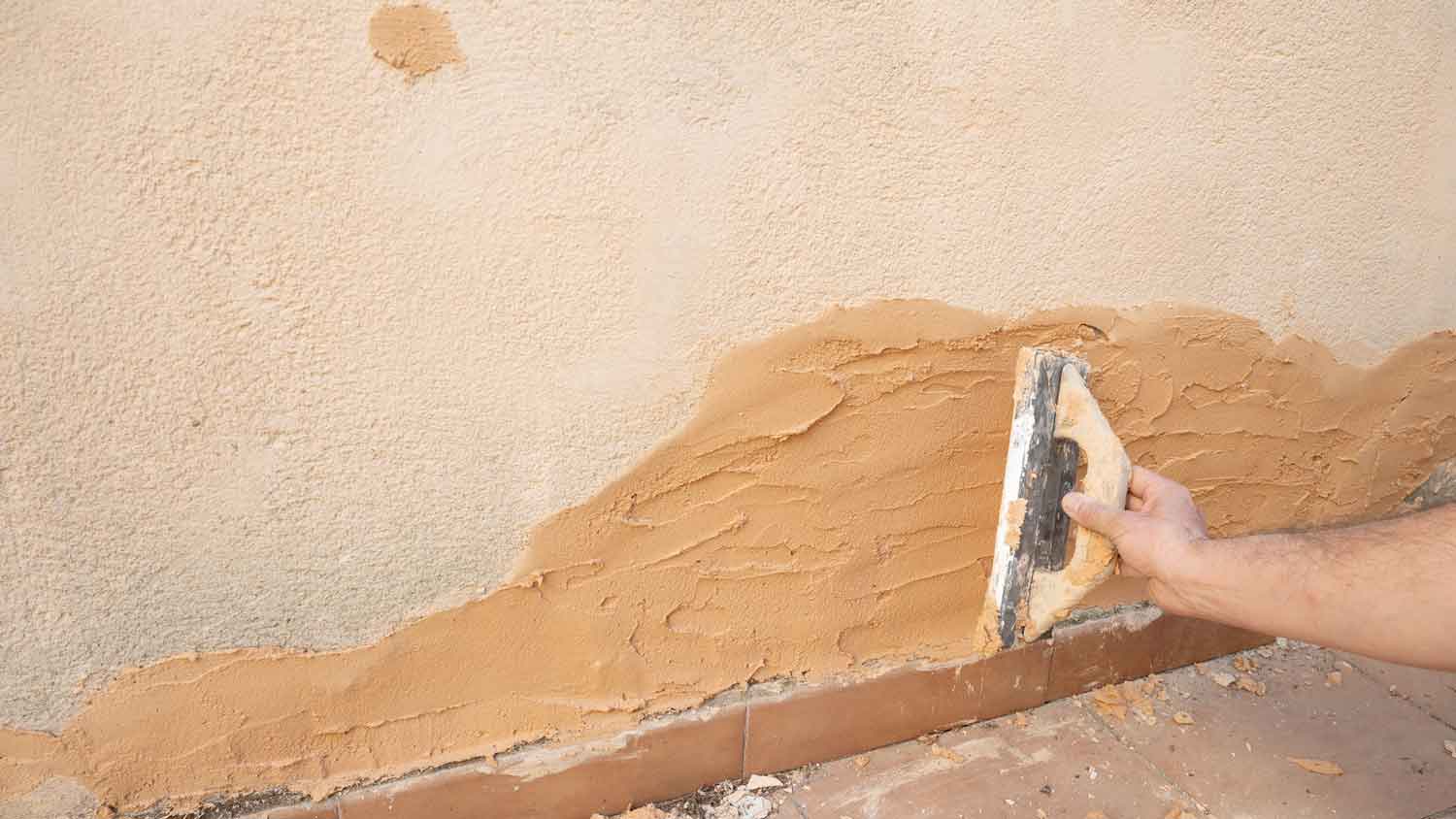
Discover how much it costs to build a cob house, including average prices, cost factors, and tips to help you plan your sustainable home project.